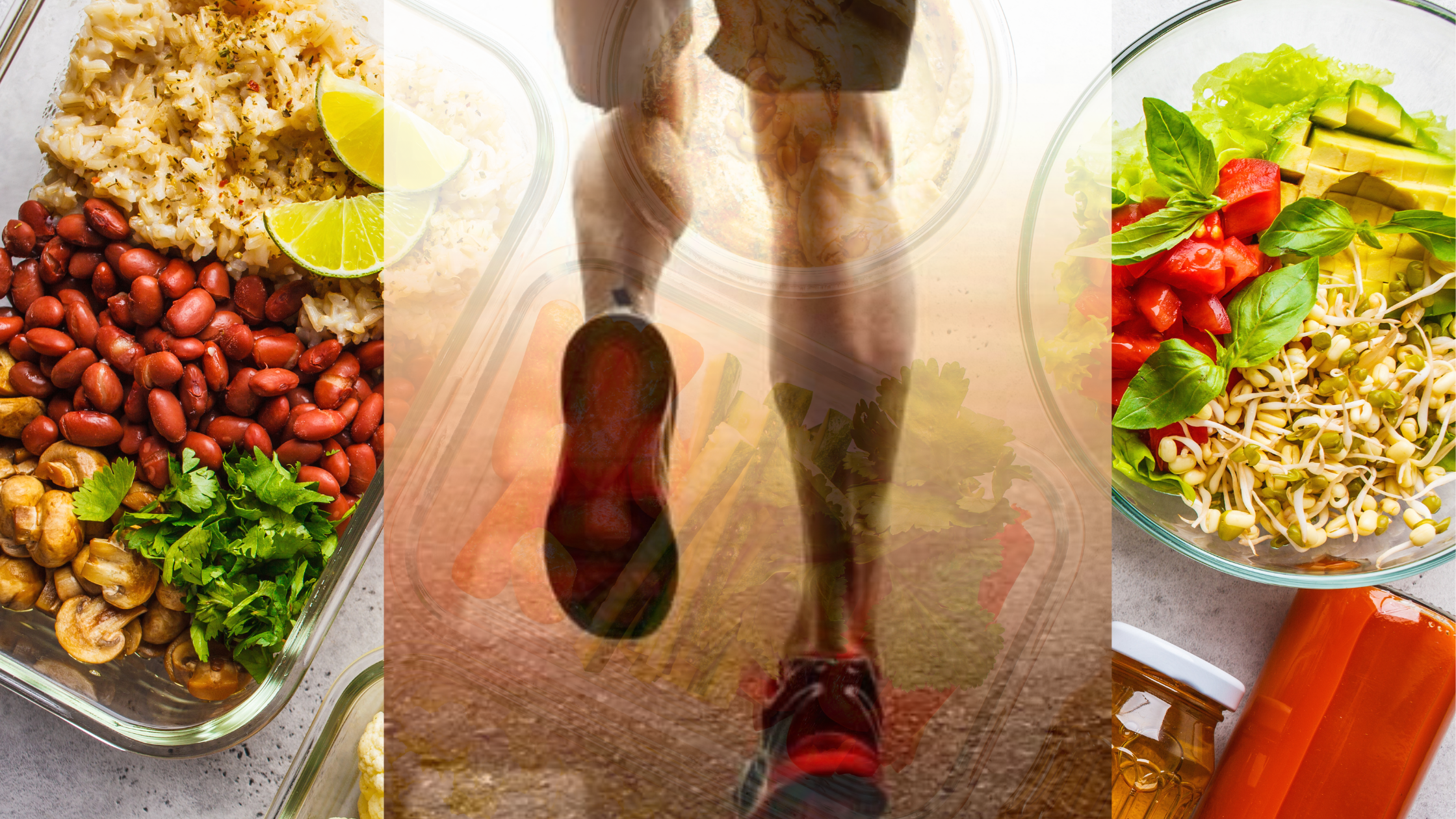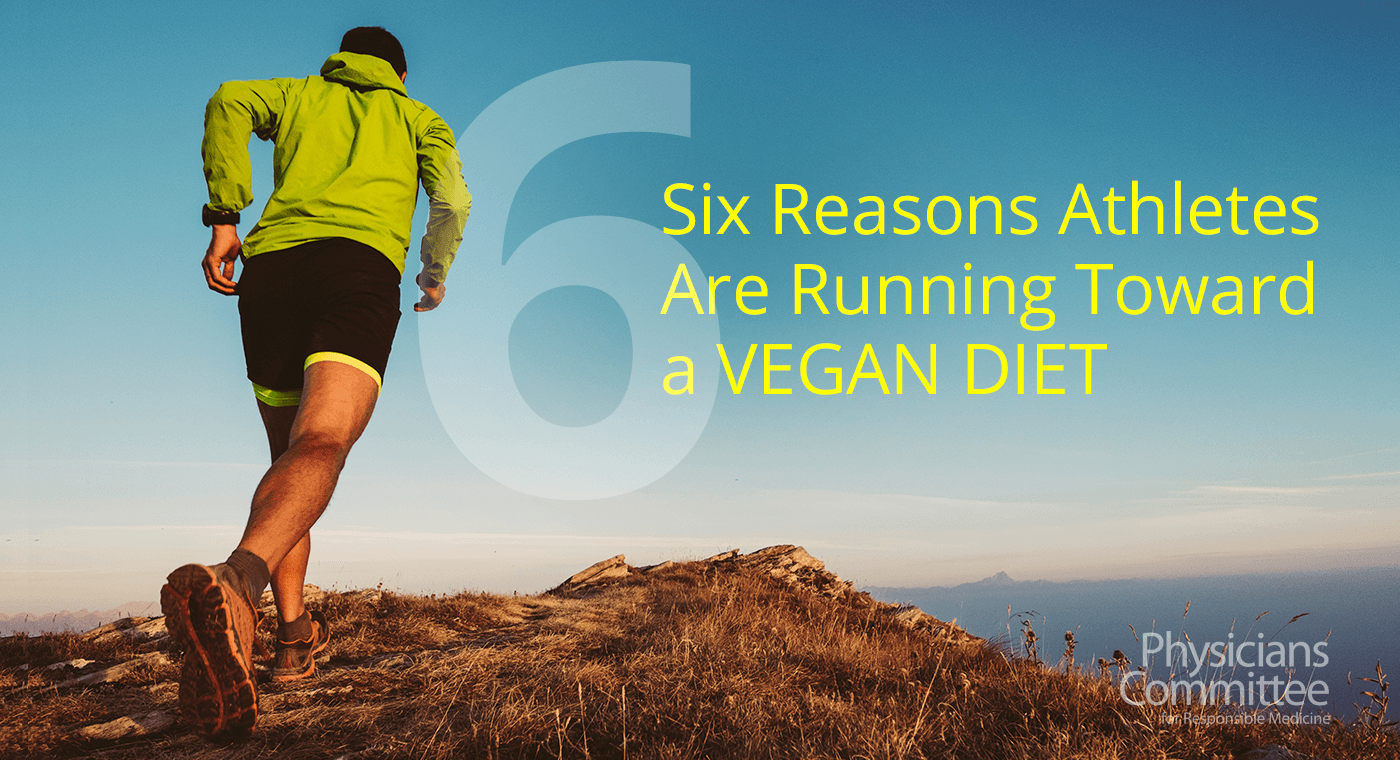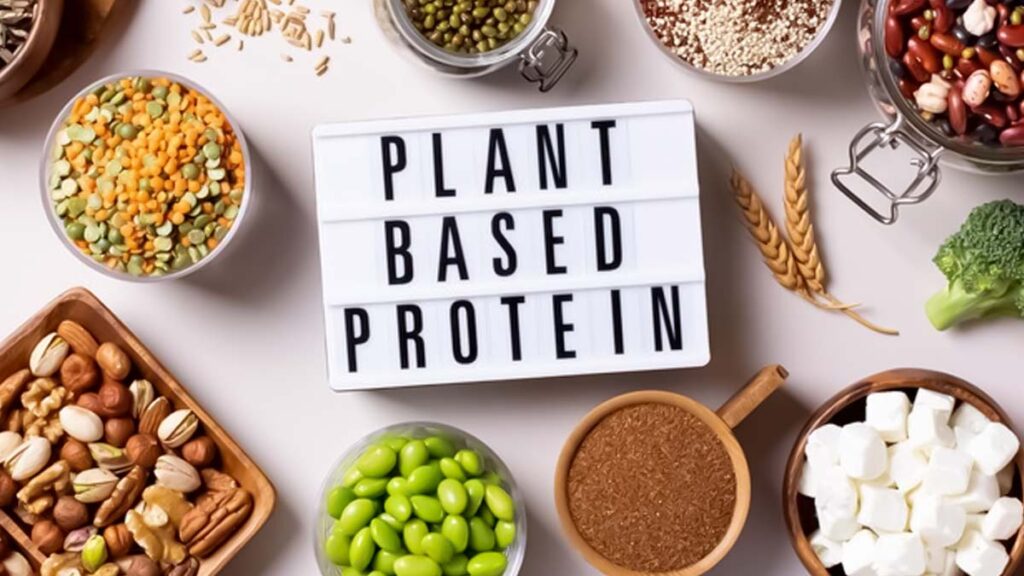Plant-based protein sources for vegan athletes include tofu, tempeh, lentils, beans, quinoa, and nuts. These options are rich in essential amino acids and can support muscle growth and recovery.
Adding these foods to a well-balanced diet can help vegan athletes meet their protein needs for optimal performance and health. As more athletes adopt a plant-based diet for health, ethical, and environmental reasons, the demand for plant-based protein sources is on the rise.
Finding the right sources of protein for vegan athletes is essential for maintaining energy levels, promoting muscle recovery, and supporting overall athletic performance. This article will explore various plant-based protein options that can help vegan athletes meet their nutritional needs and excel in their training and competition.

Credit: theplantedrunner.com
Why Vegan Athletes Should Consider Plant-based Protein
Vegan athletes looking to optimize their performance and recovery shouldn’t overlook the power of plant-based protein. While traditional sources of protein such as meat, eggs, and dairy are widely consumed among athletes, plant-based protein offers numerous benefits to support their training and overall well-being. In this article, we’ll delve into the reasons why vegan athletes should consider incorporating plant-based protein into their diet, as well as the specific benefits it can offer.
Benefits Of Plant-based Protein
Plant-based protein provides a range of essential nutrients, including fiber, antioxidants, vitamins, and minerals, that are often lacking in animal protein sources. These nutrients contribute to improved digestion, enhanced recovery, and overall health. Additionally, many plant-based protein sources are lower in saturated fat and cholesterol, which can benefit heart health and reduce the risk of chronic diseases.
Plant-based Protein And Athletic Performance
When it comes to athletic performance, plant-based protein can have a positive impact on endurance, muscle recovery, and inflammation reduction. The diverse amino acid profile provided by various plant sources supports muscle repair and growth, helping athletes to maintain strength and power. By incorporating a variety of plant-based protein sources into their diet, vegan athletes can ensure they receive all the essential amino acids necessary for optimal performance.

Credit: www.amazon.com
Popular Plant-based Protein Sources
Soy
Soy is a complete protein source, containing all essential amino acids, making it an ideal choice for vegan athletes. It is versatile and can be found in various forms such as tofu, tempeh, edamame, and soy milk. Rich in protein, it also provides essential nutrients like iron, calcium, and vitamin B12.
Pea Protein
Pea protein is highly digestible and rich in branched-chain amino acids, which aid in muscle recovery and growth. This plant-based protein source is ideal for individuals with soy or gluten allergies and can be found in the form of protein powders or added to various food products.
Hemp
Hemp is a complete protein source and also provides a good balance of omega-3 and omega-6 fatty acids, aiding in muscle inflammation reduction. It can be consumed in the form of hemp seeds, hemp oil, or hemp protein powder, making it a versatile option for vegan athletes.
Quinoa
Quinoa is not only a great source of protein, but it also contains fiber, iron, and magnesium. This versatile grain can be used in various dishes such as salads, soups, and casseroles, offering vegan athletes a complete protein source along with essential nutrients.
Maximizing Protein Intake For Vegan Athletes
As a vegan athlete, getting enough protein to fuel your workouts and support muscle growth and recovery is crucial. While there might be a misconception that plant-based diets lack protein, there are plenty of high-quality plant-based protein sources available. By calculating your protein needs, planning meals rich in plant-based protein, and considering supplements, you can easily maximize your protein intake and excel in your athletic pursuits.
Calculating Protein Needs
Calculating your protein needs is the first step in ensuring you consume enough protein for optimal performance. Generally, it is recommended that athletes consume 1.2-2.0 grams of protein per kilogram of body weight. To calculate your protein needs, follow these steps:
- Weigh yourself in kilograms.
- Multiply your weight by the desired protein intake range (e.g., 1.2-2.0 grams).
- Adjust the calculated value based on your training intensity, goals, and personal preferences.
Remember, these are just general guidelines, and consulting a registered dietitian or nutritionist can provide you with personalized protein recommendations.
Meal Planning With Plant-based Protein
Plant-based protein sources include legumes (such as lentils and chickpeas), tofu, tempeh, seitan, quinoa, nuts, and seeds. By incorporating a variety of these protein-rich foods into your meals, you can easily meet your protein requirements. Here’s a sample day of vegan athlete meal plan:
| Meal | Plant-Based Protein Sources |
|---|---|
| Breakfast | Tofu scramble with vegetables and whole grain toast topped with almond butter |
| Lunch | Quinoa salad with mixed vegetables, beans, and a tahini dressing |
| Snack | Handful of almonds and pumpkin seeds |
| Dinner | Seitan stir-fry with a variety of vegetables served over brown rice |
| Post-Workout | Chocolate-flavored plant-based protein shake |
By including a variety of plant-based protein sources in your meals, you ensure that you are getting all the essential amino acids needed for muscle growth and recovery.
Supplements For Vegan Athletes
While a well-planned vegan diet can provide all the necessary nutrients, some athletes may choose to supplement their protein intake. Plant-based protein powders, such as pea protein, soy protein, and hemp protein, can be excellent options to supplement your diet. These powders are convenient, easy to digest, and can be incorporated into smoothies, shakes, or baked goods.
However, it’s essential to choose high-quality, reputable brands that undergo third-party testing to ensure purity and quality. This ensures that you are getting the maximum benefit from your supplements and avoiding any potential contaminants.
Remember, while supplements can be a convenient way to boost your protein intake, they should not replace whole food sources of protein. Aim to primarily obtain your protein from whole, plant-based foods.
Plant Protein Vs. Animal Protein: Debunking Myths
There is a common misconception that plant-based protein is inferior to animal protein when it comes to meeting the nutritional needs of vegan athletes. However, this belief is far from the truth. In this section, we will debunk these myths and shed light on the quality of plant protein and the differences between complete and incomplete proteins.
Quality Of Plant Protein
Contrary to popular belief, plant protein can provide ample amounts of essential amino acids, which are the building blocks of protein. While animal protein sources like meat and dairy are considered complete proteins, meaning they contain all nine essential amino acids, plant-based protein sources can still deliver the same results with proper planning.
Plant proteins, such as legumes, whole grains, and nuts, may be lower in certain amino acids individually, but they can complement each other when combined. By incorporating a variety of plant protein sources into your diet, you can easily obtain all the essential amino acids your body needs to support muscle growth and repair.
Complete Vs. Incomplete Proteins
When it comes to protein sources, the terms “complete” and “incomplete” are often used. Complete proteins refer to sources that contain all nine essential amino acids in sufficient amounts. These proteins are typically found in animal sources like meat, eggs, and dairy products.
In contrast, incomplete proteins lack one or more essential amino acids. However, this does not mean they should be disregarded. By combining different incomplete protein sources, you can create a complete protein. For example, mixing legumes with grains, such as beans and rice, results in a complete protein profile.
Here are some examples of plant-based complete and incomplete protein sources:
Complete Proteins:
| Complete Protein Sources |
|---|
| Quinoa |
| Buckwheat |
| Soybeans |
| Chia seeds |
| Hemp seeds |
Incomplete Proteins:
- Legumes (beans, lentils, chickpeas)
- Whole grains (oats, barley, brown rice)
- Nuts and seeds (almonds, walnuts, sunflower seeds)
By combining different sources of plant protein throughout the day, you can easily meet your nutritional needs as a vegan athlete. Your body has the remarkable ability to create a complete protein from incomplete sources, allowing you to fuel your workouts and support your overall health and performance.
Delicious Recipes For Vegan Athletes
Eating a plant-based diet doesn’t mean sacrificing flavor or missing out on essential nutrients as a vegan athlete. In fact, there are plenty of delicious recipes that are packed with protein to fuel your active lifestyle. These recipes are not only tasty but also easy to make, providing a great way to satisfy your hunger and optimize performance. Here are a few mouthwatering options to try:
Protein-packed Smoothie
Satisfy your post-workout cravings with a refreshing protein-packed smoothie! This recipe combines the goodness of fruits, greens, and plant-based protein powder to create a nutritious and delicious drink. Here’s what you’ll need:
- 1 ripe banana, peeled
- 1 cup spinach leaves
- 1 scoop of vegan protein powder
- 1 cup almond milk (or any plant-based milk of your choice)
- Ice cubes (optional)
To prepare, simply blend all the ingredients until smooth, adjusting the consistency with more milk or ice cubes, as desired. This smoothie not only provides a good dose of protein but also important vitamins and minerals to support your recovery.
Quinoa And Black Bean Salad
This quinoa and black bean salad is a satisfying and protein-packed option that will keep you energized throughout the day. Here’s what you’ll need:
- 1 cup cooked quinoa
- 1 can black beans, drained and rinsed
- 1 red bell pepper, diced
- 1 medium tomato, diced
- 1/4 cup chopped fresh cilantro
- Juice of 1 lime
- Salt and pepper to taste
Combine all the ingredients in a bowl and toss lightly to mix. Adjust the seasoning according to your taste preferences. This salad is not only a great source of protein but also rich in fiber, antioxidants, and essential vitamins and minerals. It can be enjoyed as a light meal or a side dish.
Tofu Stir-fry With Vegetables
Looking for a satisfying and protein-rich dinner option? This tofu stir-fry with vegetables is just what you need. Here’s what you’ll need:
- 1 block of firm tofu, drained and cubed
- Assorted vegetables (such as broccoli, bell peppers, carrots, and snow peas), sliced
- 2 tablespoons soy sauce
- 1 tablespoon maple syrup or agave nectar
- 1 tablespoon vegetable oil
- Minced garlic and ginger to taste
Heat the oil in a pan over medium heat. Add the tofu cubes and cook until they start to become golden and crispy. Remove from the pan and set aside. In the same pan, sauté the vegetables, garlic, and ginger until crisp-tender. In a small bowl, whisk together the soy sauce and maple syrup/agave nectar. Pour the sauce over the vegetables and toss to coat. Add the tofu back to the pan and stir-fry for an additional minute or two. Serve hot with rice or noodles for a complete meal.
These delicious recipes are just a taste of what you can enjoy as a vegan athlete. Experiment with different ingredients and flavors to find what suits your taste buds best. Remember, a plant-based diet can be both nutritious and exciting!

Credit: www.pcrm.org
Frequently Asked Questions For Plant-based Protein Sources For Vegan Athletes
What Are The Best Protein Sources For Vegan Athletes?
The best protein sources for vegan athletes include plant-based foods like tofu, tempeh, lentils, chickpeas, quinoa, and hemp seeds. These options provide essential amino acids to support muscle growth and recovery while following a vegan diet.
Is Plant-based Protein Good For Athletes?
Yes, plant-based protein is good for athletes as it provides necessary nutrients for muscle recovery and growth. It also offers fiber and antioxidants for overall health and wellness. Incorporating plant-based protein sources can enhance athletic performance and aid in recovery.
What Do Vegan Bodybuilders Eat For Protein?
Vegan bodybuilders can get protein from plant-based sources like tofu, tempeh, lentils, chickpeas, quinoa, and edamame. They also rely on protein powders from sources like pea, hemp, and brown rice. Including a variety of these foods in their diets ensures they meet their protein needs.
How To Get 120g Of Protein A Day Vegan?
To get 120g of protein a day on a vegan diet: Include protein-rich foods like tofu, tempeh, lentils, chickpeas, quinoa, and edamame. Enjoy plant-based protein shakes and bars. Add nuts, seeds, and nut butter to your meals. Opt for high-protein vegetables like spinach, broccoli, and Brussels sprouts.
Plan balanced vegan meals.
Conclusion
To fuel your athletic performance, plant-based protein sources are a fantastic option for vegan athletes. From legumes like lentils and chickpeas to nuts, seeds, and tofu, there is an abundance of high-quality plant-based proteins to choose from.
Incorporating these protein sources into your diet can provide the necessary amino acids and nutrients to support muscle growth and recovery.
Embrace the power of plants and elevate your performance as a vegan athlete.
